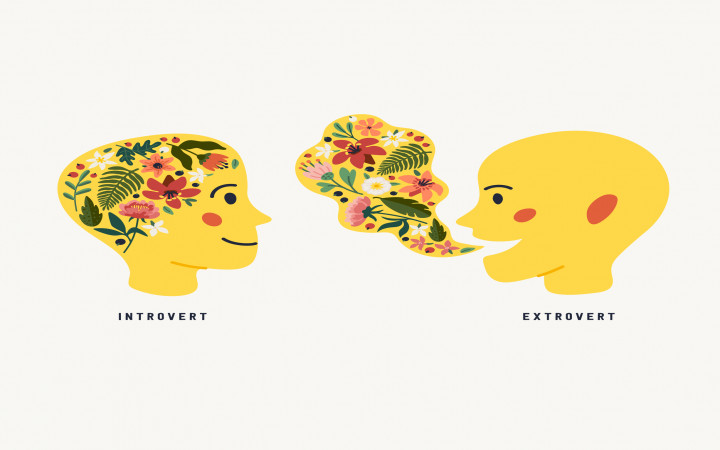Today’s Wonder of the Day was inspired by Ms. Nolen's class from Shawnee, KS. Ms. Nolen's class Wonders, “Why are some people introverted and some people extroverted? ” Thanks for WONDERing with us, Ms. Nolen's class !
Friday night is approaching and you can do whatever you want after a long week of school. What sounds most appealing to you? Would you prefer to read or play video games by yourself? Or would a slumber party with 10 of your closest friends sound more exciting?
How you answer those questions might give psychologists some insight into your personality. If your friends were to describe your personality, would they call you an introvert or an extrovert?
Introverts and extroverts exist on opposite ends of a spectrum of personality types. Introverts tend to be quiet, solitary, and reserved. Introverts are considered the opposite of extroverts, who tend to be outgoing, social, and assertive.
These terms were popularized by psychologist Carl Jung. Jung believed introverts are people whose psychic energy is directed inward, whereas extroverts are those whose psychic energy is directed outward.
Modern psychologists don't usually speak about "psychic energy" as a real thing. They do recognize, however, that introverts are usually more interested in their own thoughts rather than the external world. Extroverts, in comparison, tend to be focused on the external world, such as other people and situations.
Introverts may be seen as shy, whereas extroverts are often considered "the life of the party." Introverts prefer to spend time alone or with one or two close friends. Extroverts, on the other hand, become bored when they're alone. Instead, they function best when they're part of a group.
Is it better to be an introvert or an extrovert? Psychologists who study personalities will tell you that the distinction between an introvert and an extrovert isn't a good or bad type of judgment. It's merely a way of examining behavior and determining how a particular person might function most easily on a daily basis.
For example, many people believe that extroverts are more highly valued than introverts. Being "outgoing" may be praised, while being "shy" may be discouraged. Despite these attitudes, psychologists insist that both types of personalities have their benefits and drawbacks.
If you can't decide whether you're an introvert or an extrovert, it may be because you have an equal mix of the qualities of both. People who fall right in the middle of the introversion/extroversion spectrum are called ambiverts.
Ambiverts exhibit traits of both introverts and extroverts, with neither extreme being dominant. They tend to be more flexible and socially adaptable. They can communicate with others at a party and still enjoy coming home to spend some time reading alone. Their balanced personalities may give them advantages over both introverts and extroverts.
So which are you? An introvert? An extrovert? Or an ambivert? Chances are you might be an ambivert. Researchers believe that as much as two-thirds of the population are ambiverts, while the remaining one-third consists of either strong introverts or extroverts.





